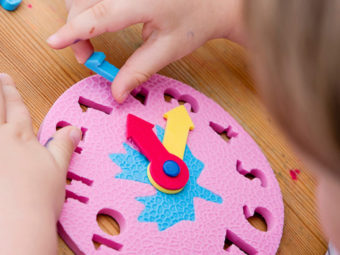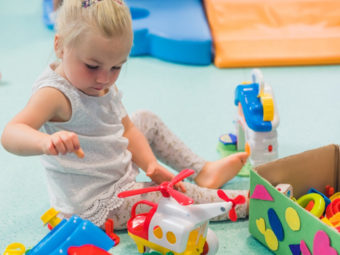
Image: Shutterstock
Parenthood is a whirlwind of emotions, and amidst the joys and tender moments, there are those puzzling instances when your precious bundle of joy starts wailing without any apparent cause. It’s a challenging ordeal that can leave you feeling utterly baffled, frustrated, and at a loss for solutions. But fear not, dear parent, for you are not alone in this situation. Countless moms and dads have treaded this mysterious path, seeking answers and solace in the face of their baby’s inexplicable tears. So, take a deep breath and embark on a journey of understanding as we explore the realms of potential causes and unveil practical strategies that will equip you with the tools to navigate these perplexing moments. Here, we will unlock the secrets of soothing your baby when their cries seem to arise from the depths of the unknown.
The Nature Of Infant Crying
Image: Shutterstock
First and foremost, it’s important to recognize that crying is a primary means of communication for infants. Babies cry to express a range of needs, such as hunger, discomfort, fatigue, overstimulation, or even the need for emotional connection. However, there may be times when your baby’s crying seems unexplainable, and this can be distressing for both you and your little one.
Possible Causes Of Your Baby Crying For No Reason
1. Discomfort
Your baby’s crying for no reason could be due to discomfort caused by a variety of factors. Check if their diaper needs changing, as a wet or soiled diaper can cause discomfort. Ensure that their clothing is not too tight, as this can irritate their delicate skin. Additionally, assess the temperature of the room and make adjustments if your baby feels too hot or cold. By addressing any physical discomfort, you can help soothe their distress and reduce their crying.
2. Hunger
Image: Shutterstock
Babies have growing nutritional needs, and even if you recently fed your little one, they may still cry due to a sudden growth spurt or increased hunger. Offering a feeding can help satiate their appetite and provide the nourishment they require. Pay attention to your baby’s cues and observe if their crying subsides after a feeding session. Remember that babies’ feeding patterns can vary, so be responsive to their individual needs.
3. Sleepiness
过度疲劳会引起宝宝的unexplained crying. When babies become overtired, it can be challenging for them to settle and fall asleep. Establishing a consistent sleep routine can help regulate their sleep patterns and create a sense of predictability. Create a calm sleep environment by dimming the lights, and minimizing distractions. By promoting a soothing atmosphere, you can support your baby in achieving better quality sleep, reducing their crying episodes.
4. Overstimulation
Image: Shutterstock
Babies have limited coping mechanisms when it comes to processing excessive sensory input. If your little one is exposed to too much noise, bright lights, or if they are constantly being handled by multiple people, they may become overwhelmed. To help calm your baby, create a quiet and soothing environment. Dim the lights, reduce background noise, and limit the number of people interacting with your baby at once. Creating a calm and peaceful atmosphere can help your baby feel more secure and alleviate their distress.
5. Need For Connection
Babies have an innate need for human connection and affection. They may cry to seek comfort, closeness, and the reassurance of their caregiver’s presence. Skin-to-skin contact, and gentle rocking can be incredibly soothing for your little one. Taking the time to hold and cuddle your baby, providing them with the physical touch they crave, can help alleviate their distress and provide a sense of security. Responding to their need for connection helps foster a strong parent-child bond and promotes emotional well-being.
When To Seek Professional Help
Image: Shutterstock
Trusting your parental instincts is like having a superpower for your little one’s well-being. As a parent, you share an extraordinary connection with your baby that words can’t capture. It’s an unspoken bond that guides you when something feels off. When concerns arise like a high fever, changes in appetite or sleep, or persistent vomiting, seek support from healthcare professionals. They possess the expertise to assess your baby’s condition and offer guidance. Since it is always better to be safe than sorry, make sure you do not delay meeting your pediatrician when such signs are there.
Coping with a baby’s unexplained crying can be quite a task, but it’s important to remember that it’s a completely normal part of their development. It’s during these moments that understanding the potential causes, employing calming techniques, and seeking support when necessary can truly make a difference. As a parent, trust your instincts and know that with time, patience, and a whole lot of love, you’ll discover what works best for your little bundle of joy. We’d love to hear from you in the comments about how you handle those puzzling moments when your child cries seemingly without reason!
















